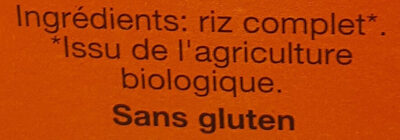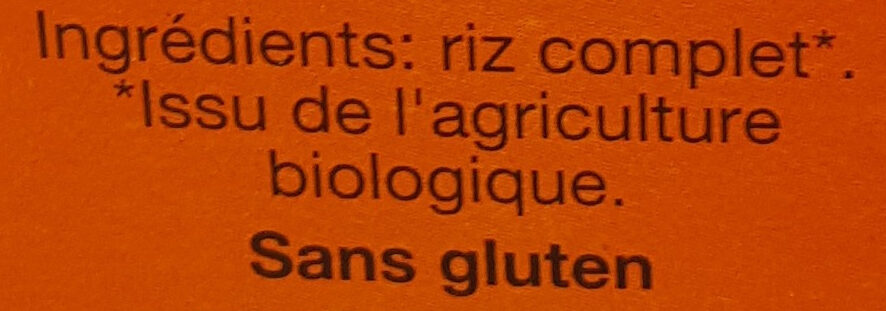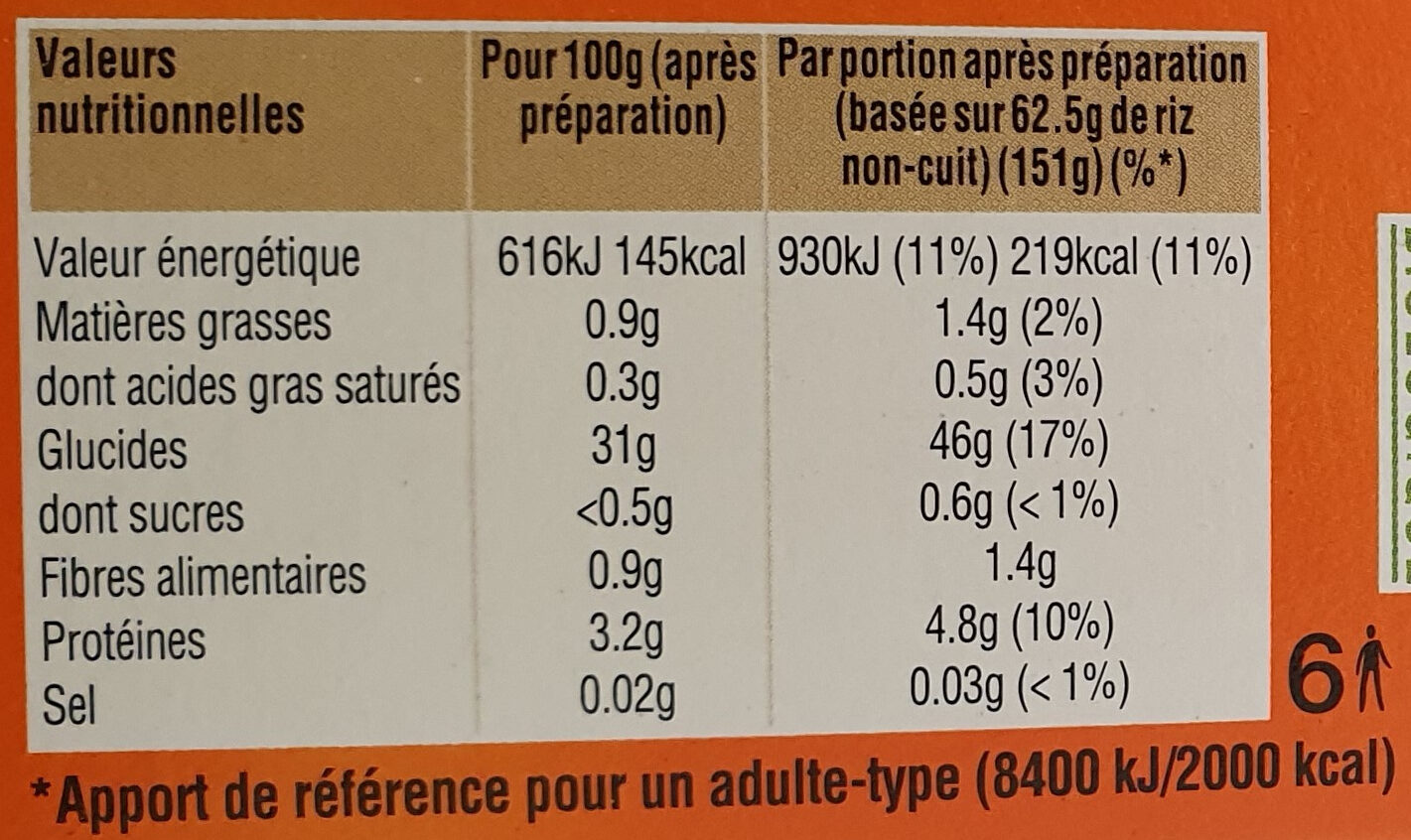Riz Complet BIO - Uncle Ben's - 3 x 125 g
Barcode: 5410673002549 (EAN / EAN-13)
Common name: Riz complet non étuvé bio
Quantity: 3 x 125 g
Packaging: Plastic, Bag, Dry, fr:Étui carton
Brands: Uncle Ben's
Categories: Plant-based foods and beverages, Plant-based foods, Cereals and potatoes, Seeds, Cereals and their products, Cereal grains, Rices, Brown rices
Labels, certifications, awards:
No gluten, Organic, EU Organic, No artificial flavors, No artificial preservatives, Non-EU Agriculture, BE-BIO-01, EU Agriculture, EU/non-EU Agriculture, No artificial colors, No artificial colours or flavours, No colorings, AB Agriculture Biologique

Origin of ingredients: Italy, Spain
Manufacturing or processing places: Belgique
Link to the product page on the official site of the producer: https://www.unclebens.fr/les-produits/ri...
Countries where sold: France
Matching with your preferences
Report a problem
Data sources
Product added on by kiliweb
Last edit of product page on by roboto-app.
Product page also edited by charlesnepote, chevalstar, corinnedu47, date-limite-app, inf, openfoodfacts-contributors, packbot, teolemon, yuka.YkljOU9ybFl0c1FndXRnaTlUM2F4ZWhhbTVXU1FGdXhNKzFOSVE9PQ, yuka.ZnBraktmNWFtK0FFbmNBWnhBamI4ZmRrd3NDNFdGN3JDOEVMSWc9PQ.












